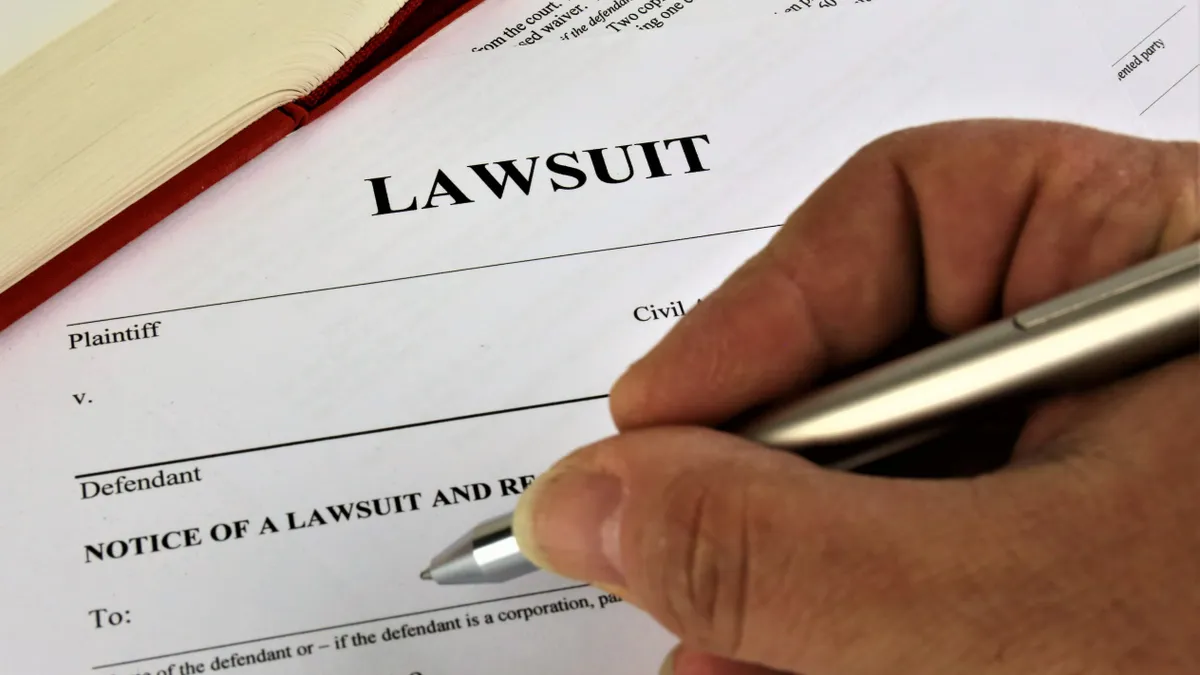Corporate counsel face more and costlier settlements and verdicts against their organizations as "social inflation" fuels skyrocketing liability claims, an analysis by insurance support company Sedgwick finds.
Social inflation is the idea that people are more likely to file a claim and expect a higher settlement or verdict based on what they see happening around them in the news and on social media. Other trends underwrite the rise in social inflation as well, including government efforts to roll back tort reforms and statutes of limitation laws and the rise of class actions.
The rise of third-party litigation funding is also playing a role. It gives people and law firms the means they might not otherwise have had to pursue a claim, and the earlier and more frequent involvement in claims by plaintiff’s attorneys is also playing a role, because whenever they get involved, awards go up.
“It is now broadly accepted that social inflation … and its effects are real and driving increasing awards,” says the report.
Litigation loop
One of the problems with social inflation is it's self-reinforcing: as people see more and higher settlements and verdicts, they come to expect more and higher amounts.
“Changes in underlying beliefs about the appropriateness of filing lawsuits and expectations of higher compensation” is one of the chief emerging risks, the report says.

Spiraling awards might be a bigger trend than analysts are even picking up on, the report says,
“Actuarial studies suggest that recent loss projections may be understated due to the phenomenon of social inflation being inconsistent with historical patterns that traditional reserving methodologies rely upon,” it says.
The trends are sobering from a defendant’s perspective:
- So-called nuclear verdicts have exploded. These are verdicts of $10 million or more, and their number and amount have been growing annually by double digits. In the last two years, the biggest awards have been paid out by companies over wrongful death claims: $46 million by IKEA, $730 million by Landstar Ranger, $1 billion by Kahkashan Carrier and a staggering but largely symbolic $301 billion by Beer Belly Sports Bar. These awards, the report says, reflect “an increase in juries’ sympathy toward plaintiffs and in their willingness to punish those who cause harm to others.”
- General liability claims in which a plaintiff’s attorney steps in to represent the claimant either before, during or shortly after the claim is filed increased to 65.1% in 2021 from 50.2% in 2017. That’s crucial because the involvement of plaintiff’s attorneys is associated with higher awards.
- The median personal injury award amount increased 33% to $100,000 from 2012 to 2018, and the mean amount increased over the same period by 50% to $1.67 million.
- The rate at which class-action litigation is rising is double that of other litigation spending, and one of the driving factors is workplace-related class actions, which grew by 230% from 2020 to 2021, to $3.62 billion.
- The percentage of law firms using litigation funding is exploding, totaling $17 billion in 2020, more than half that amount funding cases in the United States. That’s important because the funding enables claims that might otherwise not have been able to go forward to do so.
Post-pandemic surge
Little relief is in sight given the impact the pandemic has had on liability trends. Although the pandemic helped tamp down claims as people stayed home, that changed once restrictions were lifted. Legal action took off as individuals and businesses filed claims against the sufficiency of personal protective equipment, business interruption, civil rights violations, price gouging and stock value losses, among other things.
“The COVID-19 pandemic itself is projected to generate more litigation than any incident in U.S. history,” the report says. “Over 6,300 pandemic-related cases were filed prior to December 2020.”
By comparison, the Deepwater Horizon oil spill resulted in fewer than 1,000 claims.
When the pandemic is combined with social inflation, the trend for companies that could be on the receiving end of claims doesn’t look good.
“Some of the social issues surrounding COVID-19 appear to be further deteriorating corporate sentiments and fueling additional social inflation,” the report says.











